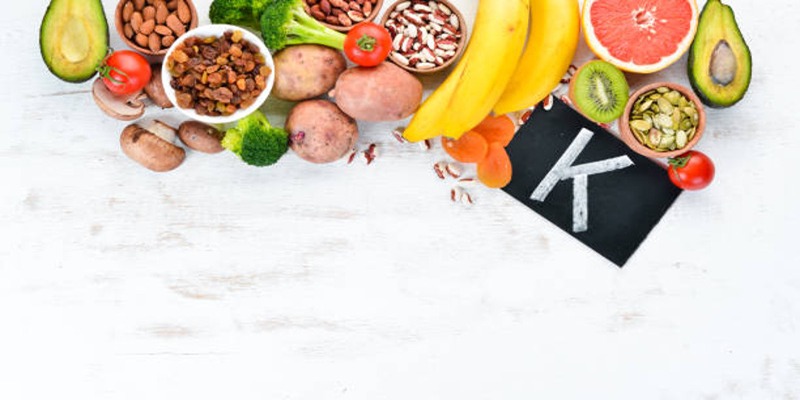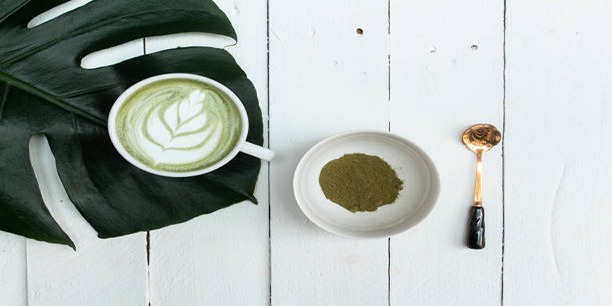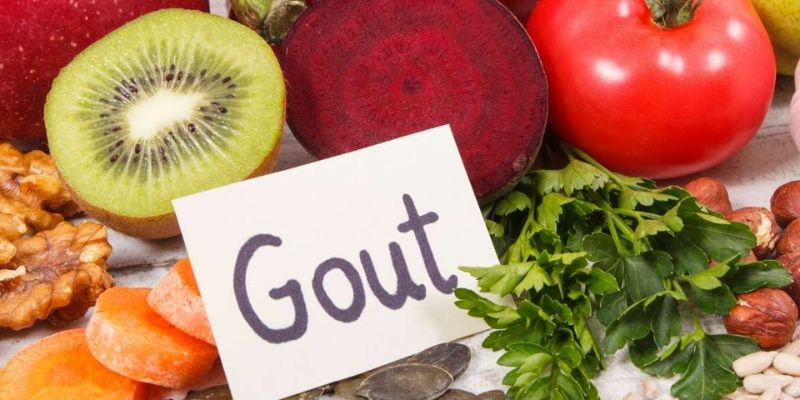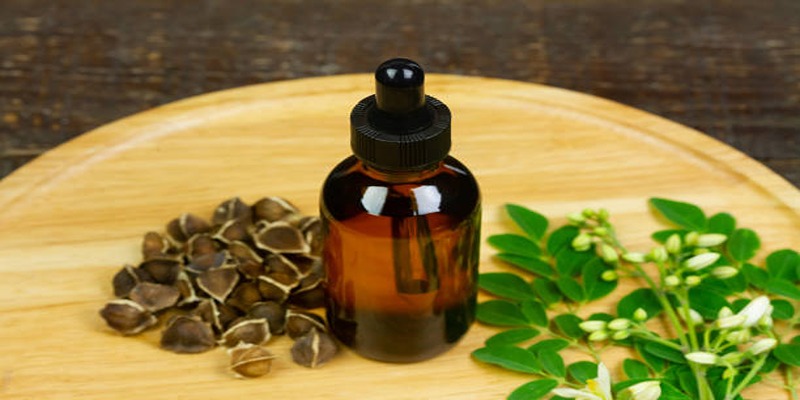If you're looking for a way to boost your intake of essential minerals, such as potassium, then look no further! Potassium is an important nutrient that helps balance fluids and nutrients in our bodies and plays an integral role in regulating blood pressure. If you're searching for foods highest in potassium but are unsure of where to start, this article will provide insight into some of the top sources of this vital mineral. From leafy greens and legumes to nuts and seeds, we'll explore all the healthiest choices so that you can get on track with increasing your daily dose of potassium. Read on to discover which high potassium foods should be part of your diet today!
Overview of potassium and its importance:
Potassium is a crucial element that plays a pivotal role in maintaining several bodily functions. This mineral is naturally present in various foods, including:
- fruits,
- vegetables,
- dairy products,
- meat,
Potassium helps: to regulate fluid balance in the body, supports healthy blood pressure, promotes nerve and muscle function, and aids in the transportation of nutrients into your cells.
Without adequate potassium levels, your body may experience some unpleasant symptoms such as muscle weakness, fatigue, and digestive problems. Therefore, it is imperative to maintain a balanced potassium intake to ensure optimal health.
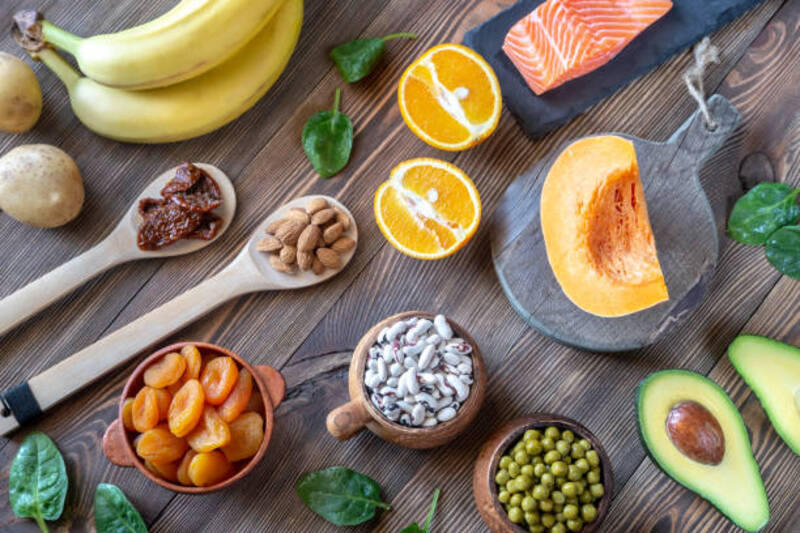
Top foods highest in potassium:
Potassium is an essential mineral that plays a vital role in various bodily functions, including:
- muscle contraction,
- nerve transmission,
- heart function,
Most people don't consume enough potassium rich foods. To help you maintain healthy potassium levels, we've created a list of the top foods highest in potassium.
Sweet potatoes:
When it comes to nutrition packed and delicious vegetables, sweet potatoes are certainly at the top of the list. Not only are they a great source of:
- complex carbohydrates,
- fiber,
- vitamins C and A,
but they're also versatile in the kitchen. From sweet baked goods to savory side dishes, there are countless ways to enjoy sweet potatoes. Plus, their natural sweetness means you can cut down on added sugars in your cooking.
White beans:
White beans are a versatile legume that can be incorporated into a wide variety of dishes, from:
- soups,
- stews,
- salads,
- dips,
These protein packed beans are a great source of dietary fiber and offer a range of health benefits, including promoting heart health and aiding in weight loss efforts. White beans are also a wonderful ingredient for vegetarians and vegans, as they offer a plant based protein source that is filling and nutritious.
Salmon:
The freshwater and saltwater species of the Salmon family are a fan favorite among fish enthusiasts and foodies alike. These pink hued fishes are truly versatile,
as they can be served as:
- sushi,
- grilled,
- smoked,
- baked,
Not only is the flavor of salmon delicious, it's also incredibly healthy. Packed with omega 3 fatty acids and protein, salmon is a great choice for those looking to maintain a balanced diet. From the vibrant sockeye salmon to the hearty chinook, each type of salmon has its own distinctive taste and texture.
Avocado:
Avocados are packed with healthy fats that can lower bad cholesterol levels and reduce the risk of heart disease.
They also contain a good amount of:
- fiber,
- potassium,
- vitamins C, K,
- B6,
Whether you enjoy them in savory dishes like guacamole or on toast for breakfast, avocados are a versatile and tasty addition to any diet.
Bananas:
Bananas are one of the most popular fruits in the world. With their unique shape and convenience, they are a go to snack for people of all ages. But bananas aren't just tasty, they are also packed with nutrients like:
- Vitamin C,
- potassium,
- fiber,
These nutrients have been shown to improve heart health, digestion, and even boost mood. Beyond their nutritional benefits, bananas are also incredibly versatile. From smoothies to baked goods to savory dishes, there are endless ways to incorporate this tropical fruit into your diet.
Spinach:
Spinach has long been known for its health benefits, and for good reason. Packed with vitamins and nutrients,
this leafy green can help:
- strengthen bones,
- boost cardiovascular health,
- improve cognitive function,
But spinach is more than just a healthy addition to your plate it can also be a delicious one. Whether enjoyed raw in a salad or cooked in a savory dish like spanakopita, spinach is a versatile ingredient that can add flavor and nutrition to any meal.
Nuts and Seeds:
Nuts and seeds are a delicious and healthy addition to any diet. Not only do they add crunch and flavor to snacks and meals, but they also offer numerous health benefits.
Nuts, such as almonds, walnuts, and pistachios, are high in heart healthy fats and protein. They also are rich in vitamins and minerals, including:
- vitamin E,
- magnesium,
- potassium,
Seeds, like chia, pumpkin, and sunflower, also offer a great source of healthy fats and minerals. They are high in fiber and can help improve digestion.
Beets:
Beets are a humble root vegetable with a slightly sweet and earthy taste that hides a wealth of nutritious benefits. High in antioxidants, vitamins, and minerals, beets have been shown to help:
- lower blood pressure,
- reduce inflammation,
- improve athletic performance,
Plus, they're incredibly versatile in the kitchen. You can roast them, boil them, pickle them, shred them into salads or puree them into soups.
Tomatoes:
Tomatoes are a staple in many households and cuisines around the world. With its juicy texture and versatile flavor, it's no wonder why they are a go to ingredient for many dishes. Whether it's sliced into a fresh salad, roasted in a pasta sauce, or grilled as a side dish, there are countless ways to enjoy the delicious fruit. Interestingly enough, although commonly used in savory dishes, tomatoes are actually classified as a fruit rather than a vegetable due to containing seeds.
Aside from its culinary uses, tomatoes are also packed with nutrients such as:
- vitamin C,
- potassium,
- antioxidants,
making it a healthy addition to any meal.
Broccoli:
Broccoli, the green vegetable often dreaded by children, is actually a nutritional powerhouse.
This cruciferous vegetable is packed with vitamins and minerals, including:
- vitamin C,
- vitamin K,
- potassium,
It's also known for containing sulforaphane, a compound that has been shown to have anti cancer properties. But broccoli isn't just good for your health it can also be delicious when prepared correctly. Whether roasted, steamed, or sautéed, broccoli can be a flavorful addition to any dish.
Health benefits from consuming potassium rich food items:
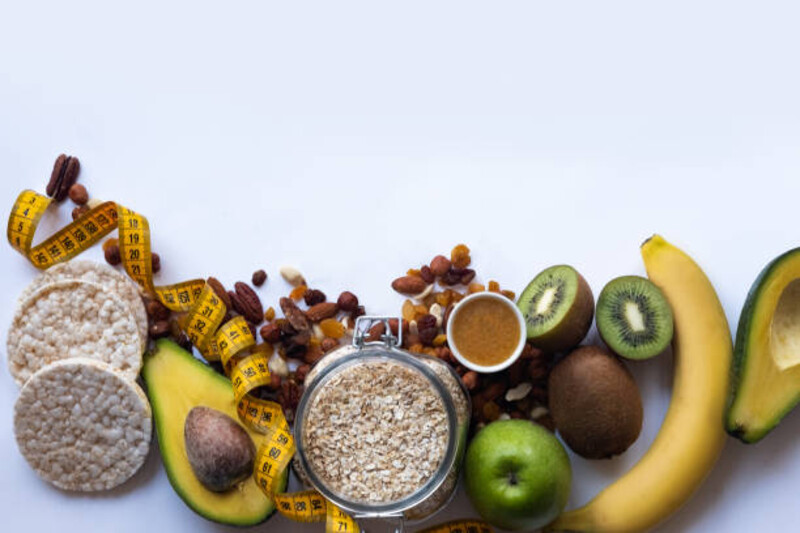
Potassium plays a crucial role in regulating the balance of fluids in our bodies. Consuming potassium rich foods is associated with numerous health benefits, including:
- reducing blood pressure,
- lowering the risk of strokes,
- preventing certain types of kidney stones,
Not to mention, potassium also helps to maintain healthy muscle function and supports nerve communication throughout the body.
So why not add potassium rich items like:
- bananas,
- avocados,
- spinach,
- sweet potatoes,
to your diet and reap the benefits of this essential mineral? Making healthy choices never tasted so good!
Conclusion:
To conclude, we can all benefit from adding more potassium into our diet. Potassium is essential for maintaining healthy fluid levels and electrolyte balance in the body, while keeping your heart healthy and cardiovascular system functioning properly. Increasing your potassium intake can be as easy as making a few small changes to your diet. Focusing on consuming more nutritious sources of potassium, such as sweet potatoes, white beans, salmon, avocado, bananas, spinach, nuts and seeds, beets, tomatoes, and broccoli can have a profound impact on restoring balance in the body.
FAQs:
Which fruit has the highest potassium?
Bananas are one of the fruits with the highest potassium content. One medium banana contains 422 mg of potassium, which is over 10% of your daily needs.
What increases potassium quickly?
If you need to quickly increase your potassium levels, try eating foods that are high in potassium such as avocados, spinach, sweet potatoes, white beans, salmon, bananas, and nuts and seeds.
How can I get 100% potassium daily?
The recommended daily allowance for potassium is 4,700 mg per day. To get 100% of your daily needs, you'll need to consume foods that are high in potassium such as avocados, spinach, sweet potatoes, white beans, salmon, bananas and nuts and seeds.
